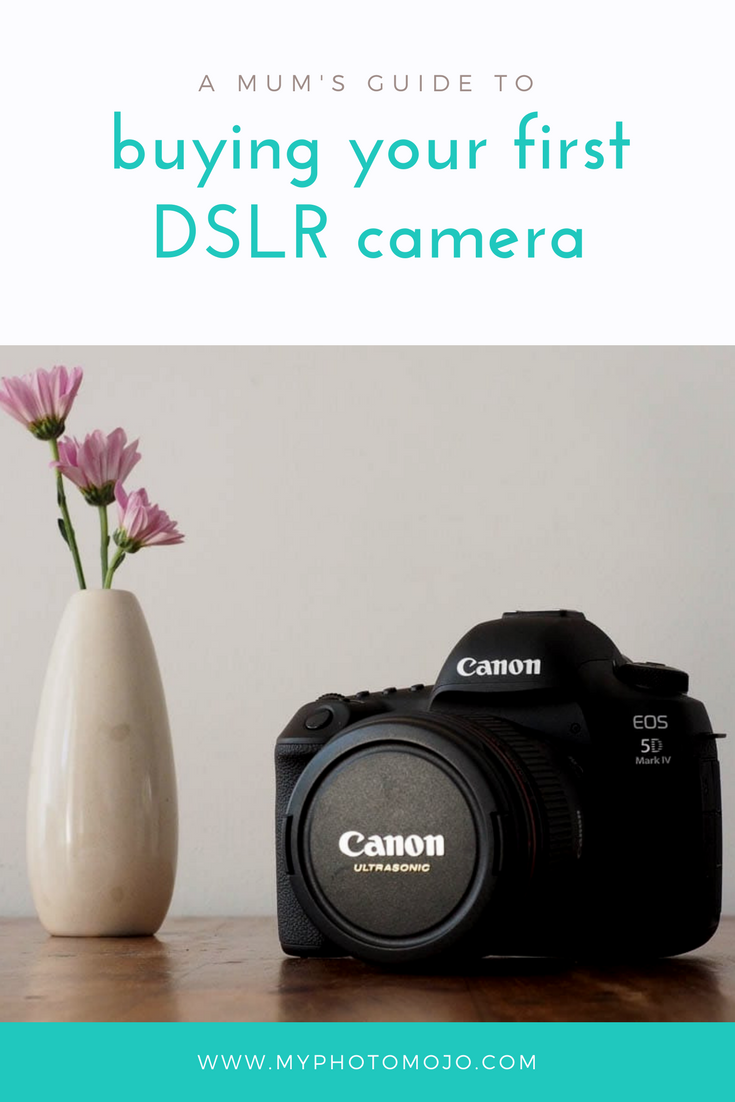A Mum’s guide to buying your first DSLR
Christmas is coming and you’re thinking of finally splashing out on a fancy camera. You start looking around online, looking in a few shops and it doesn’t take long to realise there are more cameras to choose from than dishes at your local Chinese! How on earth do you narrow it down to the right one for you? Well, I can’t help you with choosing your dinner (I normally just want it all) but I can when it comes to choosing your camera.
Here’s my top 4 things to consider when buying your first DSLR camera.
1 – Do you really want a DSLR?
A DSLR is a “big fancy” camera with interchangeable lenses. It’s what the pros use and will give you the best quality results. BUT – to get those results you have to know how to use it. If you buy a DSLR and never take it off Auto, you’re better off buying a smaller, more compact point & shoot. Your images won’t end up looking that much better, and you’ll just need a bigger bag to carry it all. If you’re happy to spend a little time learning all about your camera (I can help you there) and are maybe even looking forward to getting a little creative, then go for it! You won’t regret it!
Remember though – a DSLR is not going to magically fix your photos on it’s own. It’s going to be a team effort between you and the camera 🙂
2 – Price
Entry level DSLR’s are relatively inexpensive these days. If you’re not sure how much you’ll use it, these are a great option. If you’ve always looked longingly at gorgeous photos and wished you could do it to, and are serious about documenting your family, then perhaps consider a midrange camera and putting in a little bit more.
3 – Features
All camera’s have loads of features and when moving to a DSLR it can be hard to see the woods for the trees! So what’s important? Well, the first thing you can forget about is Megapixels. It just doesn’t matter, any DSLR these days will have enough for your needs, so don’t even worry about this one. Other feature that also used to matter a lot, aren’t such a big deal anymore either – even entry level cameras have decent ISO performance (this is how sensitive the camera is to light) Video (if video floats your boat) and other things like shutter speeds, file types etc. Sure, the better the model the better all these things will be, but entry level cameras are pretty good these days.
So what counts then? Well, it’s the handling, slightly improved sensors (picture quality) and durability that counts. Entry level DLSR have controls that make it hard to work in full manual, without dedicated shutter and aperture controls you have to go through menus which can make it harder to work when your kids are running around – so 95% of the day. The quality of the body itself gets sturdier as you go up.
How does it feel in your hands: The two main players in the field are canon and nikon. While I shoot with canon there is no right answer here. If you can, go to the shop and pick up the models you’re looking at, play with the dials and see which one feels right in your hands.
4- Accessories
Here’s the thing about DSLR’s. The camera body is just one half of the picture. The lens is the other. The “kit” lenses that come with your camera are going to be OK for getting starting and learning the ropes. For the biggest leap in your photography quality you’ll want to start getting some good glass. The best bang for your buck and a lens I’d strongly recommend you try to stretch the budget and include a nifty fifty in your initial purchase. You can read all about that lens here.
So there you have it. Do you have any specific questions? Seen a great deal you’d love to share? – Comment below and let us know or just ask!




Facebook Comments